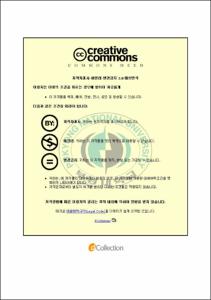침투 트렌치로 인한 유출 양상의 실험 연구
- Alternative Title
- Experimental Study of Runoff Induced by Infiltration Trench
- Abstract
- Infiltration facilities are effective instruments to mitigate flood and can increase base runoff in urban watersheds. In order to analyze effects of infiltration trenches physical model experiments were conducted. A part of experimental results was used to verify a modified SWMM code from other research that can simulate infiltration trenches.
The physical model facility consists of two soil tanks, artificial rainfall generators, tensiometers, and piezometers. The experiment was conducted by nine times and each case differed in rainfall intensity, rainfall duration and the type of ground surface. Measured quantities in the experiments are as follows: surface runoff, subsurface runoff, trench pipe runoff, groundwater level, water content, etc.
The following resulted from the model experiment: The volume of subsurface runoff at trench watershed was maximum 78.3 % compared with rainfall. This value is bigger than that of ordinary rate of subsurface runoff, and shows a groundwater recharge effect of trench. The time of runoff passing through the trench became earlier and the volume of runoff became larger with the increase of inflow into the trench, while trench exfiltration into ground became relatively smaller. The modified SWMM simulation results were different from the experimental results in groundwater level and water content. Trench pipe runoff and subsurface runoff, however changed in similar patterns between the two. Particularly in comparison of subsurface runoff for 24 hours, peak runoff was somewhat different, but the total volume of subsurface runoff obtained from SWMM was up to 98.5 % of the experimental results, showing that the two values were similar.
The results of this study presented above show that infiltration trenches are effective instruments to increase base runoff during dry periods. In addition, the simulated results were close to the experimental results on the change of subsurface runoff. This verifies the validity of the modified SWMM. The experimental results and the parameters used in SWMM simulations can be reference data for field application of infiltration trenches.
- Issued Date
- 2007
- Awarded Date
- 2007. 2
- Type
- Dissertation
- Publisher
- 부경대학교 대학원
- Alternative Author(s)
- Cho, Hee-Ho
- Affiliation
- 부경대학교 대학원
- Department
- 대학원 토목공학과
- Advisor
- 이상호
- Table Of Contents
- 1. 서론 = 1
1.1 연구 배경 및 목적 = 1
1.2 국내외 연구동향 = 3
1.3 논문의 내용 및 범위 = 6
2. 침투 트렌치와 SWMM = 8
2.1 침투 트렌치 = 8
2.1.1 침투 트렌치의 개요 및 구조 = 8
2.1.2 침투 트렌치의 구성 재료 = 12
2.1.3 침투 트렌치 설치 시 고려사항 = 15
2.1.4 침투 트렌치 유지방안 = 15
2.2 SWMM의 기본구조 = 17
2.2.1 SWMM의 개요 및 구조 = 17
2.2.2 RUNOFF 블록의 구성 = 21
2.2.3 침투 트렌치를 고려한 SWMM의 수정 = 26
3. 침투 트렌치에 대한 모형실험 = 32
3.1 모형실험 장치 = 32
3.1.1 침투 트렌치 실험의 개념 = 32
3.1.2 침투 트렌치 실험 토조의 제작 = 33
3.1.3 실험기기의 구성 및 설치 = 38
3.2 실험 조건 및 방법 = 42
3.2.1 함수비 계산 = 42
3.2.2 모형실험 조건 및 실험방법 = 44
3.3 실험 결과 = 48
3.3.1 사례 1-1 = 48
3.3.2 사례 1-2 = 52
3.3.3 사례 1-3 = 55
3.3.4 사례 2-1 = 58
3.3.5 사례 2-2 = 61
3.3.6 사례 2-3 = 64
3.3.7 사례 3-1 = 67
3.3.8 사례 3-2 = 70
3.3.9 사례 3-3 = 73
3.4 모형실험 결과에 대한 고찰 = 78
4. 침투 트렌치 모형실험에 대한 SWMM의 적용 = 80
4.1 SWMM 모의에 필요한 입력자료 구성 = 80
4.2 SWMM 모의 결과와 모형실험 결과의 비교 = 83
4.2.1 강우강도 90 mm/hr, 강우지속기간 5시간 (사례 A) = 83
4.2.2 강우강도 75 mm/hr, 강우지속기간 5시간 (사례 B) = 87
4.2.3 강우강도 60 mm/hr, 강우지속기간 5시간 (사례 C) = 90
4.3 실험 결과와 모의 결과의 비교에 대한 고찰 = 94
5. 결론 = 95
참고 문헌 = 97
감사의 글 = 101
- Degree
- Master
- Files in This Item:
-
-
Download
 침투 트렌치로 인한 유출 양상의 실험 연구.pdf
기타 데이터 / 7.54 MB / Adobe PDF
침투 트렌치로 인한 유출 양상의 실험 연구.pdf
기타 데이터 / 7.54 MB / Adobe PDF
-
Items in Repository are protected by copyright, with all rights reserved, unless otherwise indicated.